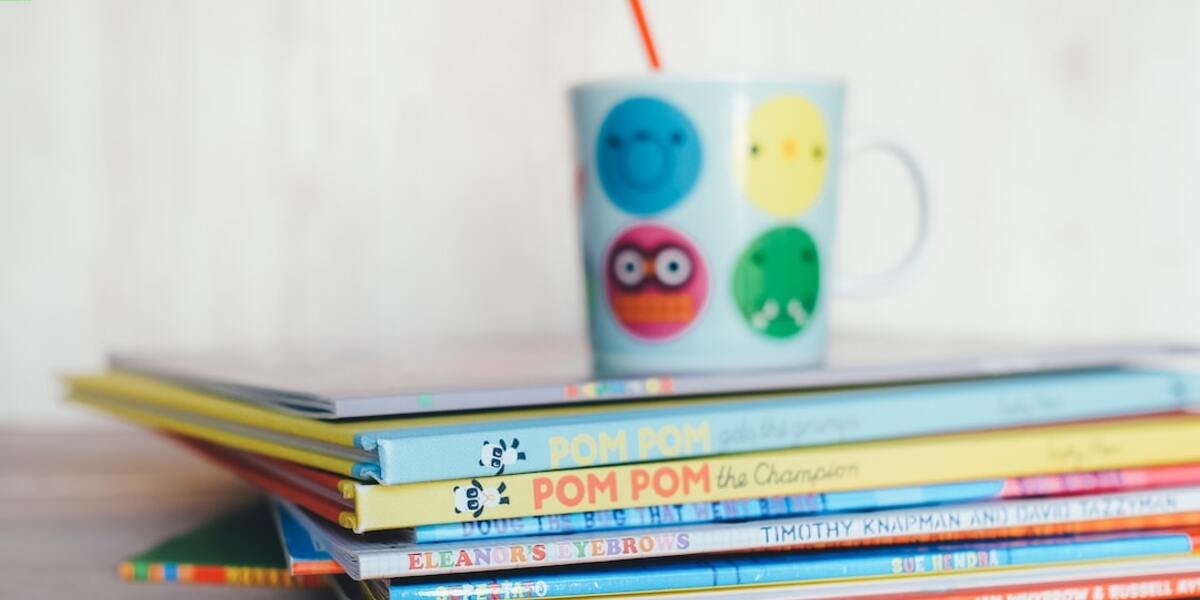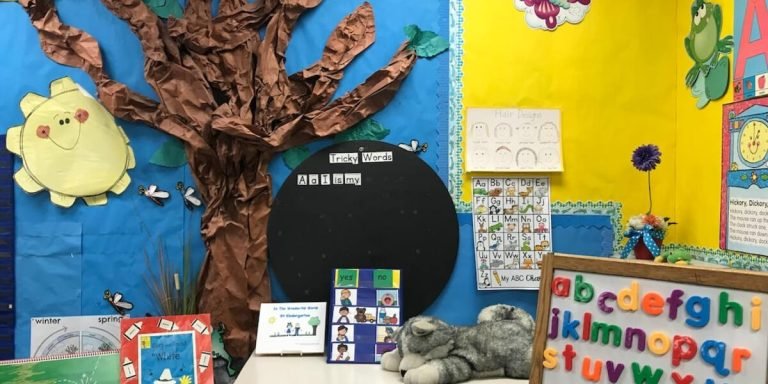ELA for 3rd Graders: Engaging Strategies to Foster Love for Literature
Learning how to cultivate a passion for literature from an early age is undeniably crucial, and this responsibility often falls on the shoulders of 3rd-grade teachers. ELA (English Language Arts) for 3rd graders can be challenging due to varying student interests and learning speeds. Yet with innovative strategies, it’s entirely feasible to foster love for reading in children at this significant stage.
The task requires more than just routine teaching methods; educators must inspire a sense of intrigue about literary worlds amongst youngsters during their elementary schooling years. By creating engaging content that resonates with them personally, teachers stand better chances of nurturing not only effective readers but also potential future authors!
Did you know?
A little-known fact is that a study published in the Journal of Developmental & Behavioral Pediatrics found that third graders who demonstrated proficient reading skills were more likely to show higher academic achievements later, specifically in literature and other language subjects.
The Core Components of ELA for 3rd Graders
In the complex and ever-evolving world of education, English Language Arts (ELA) for 3rd graders has emerged as a pivotal component. As we delve into this process, it becomes clear that ELA provides an interactive and dynamic foundation that strengthens students’ command over language use. It’s not just about reading or writing; rather, it includes listening skills, vocabulary expansion and critical thinking capabilities too!
This well-rounded approach helps our young learners navigate through texts effectively while also enabling them to articulate their thoughts clearly.
The integration of technology in EDUCATION is revolutionizing how educators teach ELA to third-grade students. In 2023, there are numerous digital tools at our disposal which help bring these core components alive with captivating visuals & engaging activities- right from sentence formation exercises on virtual blackboards to animated stories fostering comprehension skills.
From harnessing e-books during group sessions for developing superior reading proficiency amongst students to utilizing software applications enhancing their grammar rules understanding – new-age technologies provide ample opportunities for enriched learning experiences in elementary school classrooms today.
At its heart though lies the artful blend between traditional classroom teaching methods merged seamlessly with these innovative tech tools: because when used judiciously together they pave way towards accelerated progress by making ‘learning’, a fun-filled adventure instead of monotonous task only. And isn’t this precisely what childhood should be all about?
Understanding Reading Comprehension Strategies
In the sphere of elementary school learning, gaining mastery over reading comprehension strategies is indispensable when it comes to English Language Arts (ELA) for 3rd graders. Deepening this understanding can empower children to navigate complex literary texts and engage more fully in their educational journeys.
Primarily, recognizing main ideas is a significant part of effective reading comprehension. It facilitates the process where students identify key themes within a passage or book that holds superior relevance above other information provided. Practicing this skill enables kids as they gravitate towards more intricate readings.
Secondly, summarizing skills help learners condense information into digestible pieces without losing vital content matter—a critical ability considering today’s rapidly evolving digital world with its overwhelming influx of data.
Moreover, making connections ensures higher engagement while decoding messages conveyed by authors—it could be related to something experienced personally or an event witnessed elsewhere. Encouraging third graders’ creativity in drawing parallels helps them understand context better while also fostering empathy and cultural acceptance.
Word inference – another crucial aspect contributing significantly to ELA for 3rd graders. The capability to infer meaning from unknown vocabularies not only expands linguistic proficiency but mitigates disruption during seamless voyage across diverse narratives—an invaluable tool given globalization’s complex lingual landscape requiring adaptable language abilities among youngsters!
Exploring the Building Blocks of Writing Skills
The proficiency in English Language Arts (ELA) is a fundamental aspect of elementary learning that goes beyond mere reading and writing. Specifically, when we talk about ELA for 3rd graders, it encompasses an array of building blocks to enhance their writing skills progressively.
One essential component this age group should master is sentence construction. This includes understanding the basic principles such as nouns, verbs and adjectives usage. Additionally, they need to recognize compound words along with both simple and complex sentences creation.
Transitioning from constructing paragraphs formed of short sentences into longer ones would be another milestone towards significantly developing writing skills among the third-graders. Encouraging them to express ideas related to given topics or stories further nurtures creativity while boosting comprehension levels too.
Vocabulary expansion also plays a vital role in fortifying ELA for 3rd graders’ foundation. By integrating technology-based vocabulary apps into education settings might yield significant strides forward within this sphere; easing word search tasks besides fostering active engagement leading these budding learners onto paths of language exploration independently yet intriguingly!
Enhancing Vocabulary and Language Skills in 3rd Grade ELA
Understanding and mastering English Language Arts (ELA) is a crucial part of 3rd-grade education. The ELA curriculum not only emphasizes reading, writing, and comprehension but also lays a strong emphasis on vocabulary expansion. In today’s digitally charged world where technology integration in education has become the norm instead of exception, introducing tech-savvy methods to enhance vocabulary for 3rd graders can have immense benefits.
Technology comes with an array of tools that hold potential to elevate language skills significantly at the elementary level. For instance, interactive mobile applications allow students to learn new words while playing games which make learning fun rather than a daunting task. E-books provide easy access for children who love to read stories or explore different genres thematically aligned with their age group; these come packed with word definitions helping build their vocabularies without leaving the page.
Moreover, teaching platforms integrated into classroom settings are beneficial too as they aid teachers in tailoring instructions according to individual student needs — giving every child an opportunity excel in ELA. Online dictionary resources like Word Hippo offer synonms replacing commonly used words enhancing lexical resource furthermore podcasts stimulate auditory learners well.
Effective Techniques for Vocabulary Expansion
Fostering a robust vocabulary is critical for 3rd graders, especially within their ELA (English Language Arts) studies. Here are some effective methods to expand your child’s or student’s lexical prowess.
1. **Interactive Word Walls**: This technique creates an engaging environment where children interact visually with words daily; it effectively utilizes technology in education and offers the scope to elaborate on “ela for 3rd graders”. These walls don’t just display words but also provide definitions and usage examples that promote better comprehension.
2. **Digital Flashcards**: Websites or apps such as Quizlet allow teachers and parents alike to create custom flashcards suitable for ela grade level learning needs of third-graders. The digital format adds a dash of fun, fostering eager participation from students while reinforcing memorization techniques!
3. **Virtual Book Clubs**: Book clubs offer the chance not only to read varied genres but also challenge learners with unfamiliar phrases & sentences they wouldn’t typically encounter – making them great sources of vocabulary expansion! Modern tech tools like Zoom can help organize these virtual gatherings effortlessly!
4. **Online Vocabulary Games:** There are various games specifically designed for teaching ela online which incorporate playful strategies aimed at expanding vocabularies without making it feel tedious! Sites like ABCmouse add gamification elements that make acquiring language skills pleasurable.
Grammar Fundamentals for Elementary Students
In today’s digital world, empowering young learners with efficient language skills is not just important but a necessity. A vital aspect of this learning process involves familiarizing 3rd graders with the essential grammar basics. Inculcating these fundamentals in students at an early age catalyzes their proficiency in language and develops a firm foundation for ELA for 3rd graders.
Firstly, it’s crucial to integrate technology into teaching grammar since children tend to resonate more effectively with interactive mediums. Utilize educational applications or websites that offer gamified lessons designed specifically towards mastering elementary-level grammar concepts such as punctuation marks, parts of speech, and sentence structure.
Visual learning aids available online can also be highly beneficial. Engaging videos simplifying complex grammatical rules will appeal immensely to visual learners while reinforcing theoretical knowledge; thereby enhancing vocabulary skills among third-grade students significantly.
Moreover, it’s worth exploring podcasts tailored for children which explain English Language Arts (ELA) topics creatively through storytelling techniques coupled with fun quizzes & exercises that reinforce learned content instantly – making them ideal tools in teaching ela for 3rd graders.
One should never underestimate the power of practice when solidifying newly acquired competence—this especially rings true when we talk about Grammar education! Encourage your child or student to participate actively on virtual platforms offering worksheets related explicitly toward different elements of grammar – applicable within the context they’re studying currently at school!
Integrating Technology into Third-Grade English Language Arts
In the realm of third-grade English language arts – or ELA as it is often shortened, technology presents vast opportunities for enhancing learning experiences. The integration of cutting-edge tools offers an interactive approach making subjects such as reading comprehension and creative writing more engaging to our digital native learners.
The era we live in today, 2023, brims with technological advances that educators can leverage fruitfully within their classrooms. Embedding appropriate technologies into foundational education systems nurtures students’ ability to grasp complex information while offering them a stimulating environment wherein they learn by exploring virtual spaces at their comfort levels.
For instance, eBooks are substituting traditional textbooks enabling children to interact with text through touch screen devices conveniently. Moreover, applications like augmented realty (AR) have transformed storytelling sessions from simply hearing tales into vibrant visual journeys which resonate better with young minds fostering not only literacy but also creativity and imagination amongst third graders.
Technology’s seamless integration in elementary school learning has broadened horizons crafting well-rounded individuals who excel academically whilst prepared adequately for challenges posed by this dynamically evolving digital world reaffirming its indispensability in modern-day pedagogical methodologies serving us all so faithfully!
Utilizing Educational Apps to Support Literacy
Third-grade English Language Arts (ELA) classes have significantly evolved with technology integration, changing education in a way that promotes active learning for 3rd graders. Now, more than ever, we are witnessing the efficacy of educational apps to support literacy.
One cannot overlook how technology has reshaped classroom settings and changed teaching methodologies over time. In particular, specific applications help young learners develop fundamental skills needed for their language arts subject.
For instance, there’s ‘Reading Eggs’, an app designed specifically around phonics-based early reading instruction which aids not only word recognition but comprehension too! The fun aspects embedded within this application keep youngsters hooked on improving their reading abilities regularly without making them feel like they’re working hard!
Interactive Online Resources to Reinforce ELA Concepts
Integrating technology into classroom learning has been a game-changer in recent years, particularly when it comes to teaching English Language Arts (ELA) for 3rd graders. The use of interactive online resources can greatly reinforce ELA concepts and make them more engaging and fun.
One excellent way of doing this is through e-books or digital storytelling platforms. Not only do these tools provide an immersive reading experience, but they also incorporate audio-visual elements that help cement understanding and enjoyment. It’s not just about words on a page anymore; children now have the opportunity to delve deeper into stories with vivid animations, character voices, sound effects, and even interactivity within the story itself!
Next up are ELA-specific educational games that gamify grammar lessons or spelling drills. Rather than repetitive worksheets or textbook exercises alone – which could easily bore students – such gaming apps combine play with education to capture kids’ attention spans longer while subtly reinforcing important language concepts.
Discussion boards may seem like something exclusively for teenagers or adults using social media communities – yet younger learners too can benefit from moderated versions designed specifically for their age group! These safe online spaces allow students to discuss book characters’ motives together after reading chapters independently at home enhancing comprehension skills plus encouraging critical thinking abilities early on in life.
Conclusion
In conclusion, it’s clear that fostering a love for literature in your child isn’t only about having them study ELA for 3rd graders. It is also about implementing engaging strategies such as interactive reading and creative writing exercises. When you take the steps to make learning enjoyable and relatable, not just insurmountable text on pages, your third grader will soon develop an enduring affinity towards books.
Dive deeper into the world of early childhood education with us; we have plenty more insights to share! Whether you’re a teacher seeking innovative teaching methods or parent wanting expert advice – our website is rich with resources aimed at nurturing young minds effectively. Explore further topics on educating children along with varied modes of support available for parents and educators alike within our content trove.







